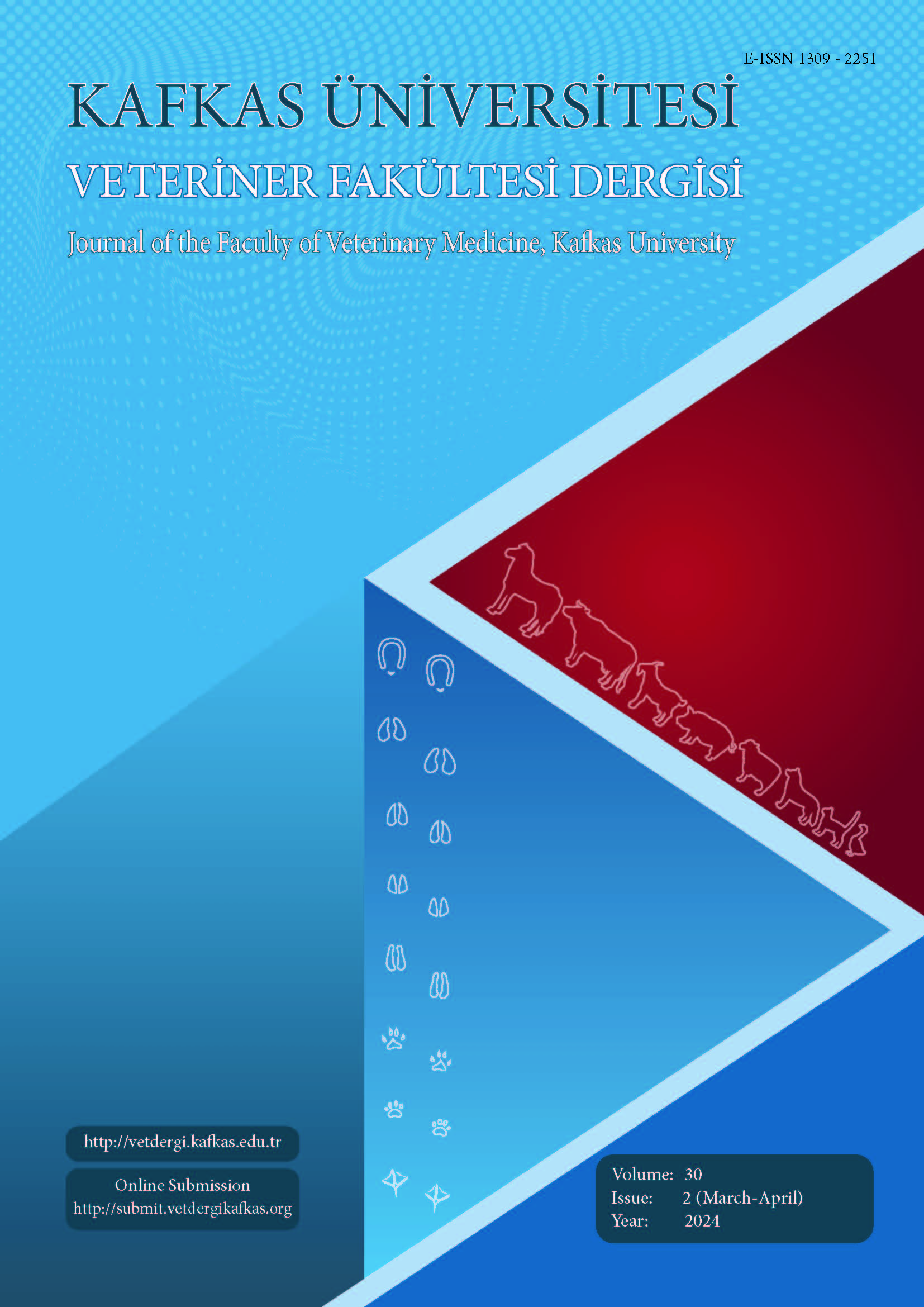
This journal is licensed under a Creative Commons Attribution-NonCommercial 4.0 International License
Kafkas Üniversitesi Veteriner Fakültesi Dergisi
2024 , Vol 30 , Issue 2
Evaluation of Antimicrobial Efficacy and Phenolic Compound Profiles in Geopropolis Samples from Bolivia and Venezuela
1University of Health Sciences, Gulhane Medical Faculty, Department of Microbiology, TR-06018 Etlik, Ankara - TÜRKİYE2Apitherapy and Bioactivity, Food Science Department, Faculty of Pharmacy and Bioanalysis, Universidad de Los Andes, Mérida 5101, VENEZUELA
3Hacettepe Univesity, Science Faculty, Department of Biology, TR-06018 Beytepe, Ankara- TÜRKİYE
4Trakya University, Faculty of Pharmacy, Department of Basic Pharmaceutical Sciences, TR-22030 Edirne- TÜRKİYE DOI : 10.9775/kvfd.2023.30816 In this study, we investigated the balsamic contents, total phenolic contents, flavoneflavonol contents, and flavanones-dihydroflavonols contents, and antimicrobial effects of seven geopropolis samples produced by four neotropical stingless bee species: Venezuelan Melipona favosa, and Bolivian M. grandis, Scaptotrigona depilis, S. polysticta. The balsamic content value was found highest in the sample of S. polysticta (sample 7) collected from Bolivia, highest total phenolic content in M. favosa geopropolis (sample 1) from Venezuela, highest flavone-flavonol content in M. favosa geopropolis (sample 2) collected from Venezuela and highest flavones-dihydroflavonols content in S. polystica (sample 7) from Bolivia. As a result, except for balsamic content values, other investigated values were lower compare to the previous researches about different stingless bee species geopropolis. This is proved that climatic conditions, bee species and collecting area affected the chemical content of geopropolis significantly. The antimicrobial findings indicated that the examined geopropolis extracts displayed different degrees of inhibition against the growth of Gram-positive bacteria and fungi, which correlated with their phenolic contents. Nevertheless, these extracts did not demonstrate a comprehensive inhibitory effect on Gram-negative bacteria. Standardized geopropolis samples, rich in phenolic content, can complement antibiotics naturally for preventing and treating infections from Gram-positive bacteria and Candida albicans. However, further studies are still needed regarding the clinical applications of geopropolis in various infections. Keywords : Geopropolis, Melipona favosa, Melipona grandis, Scaptotrigona depilis, Scaptotrigona polysticta, Antimicrobial activity, Phytochemicals










